Spring Fiction from Simon & Schuster
With the support of the publisher, Shelf Awareness highlights four major Simon & Schuster novels coming in Spring 2022.
With the support of the publisher, Shelf Awareness highlights four major Simon & Schuster novels coming in Spring 2022.
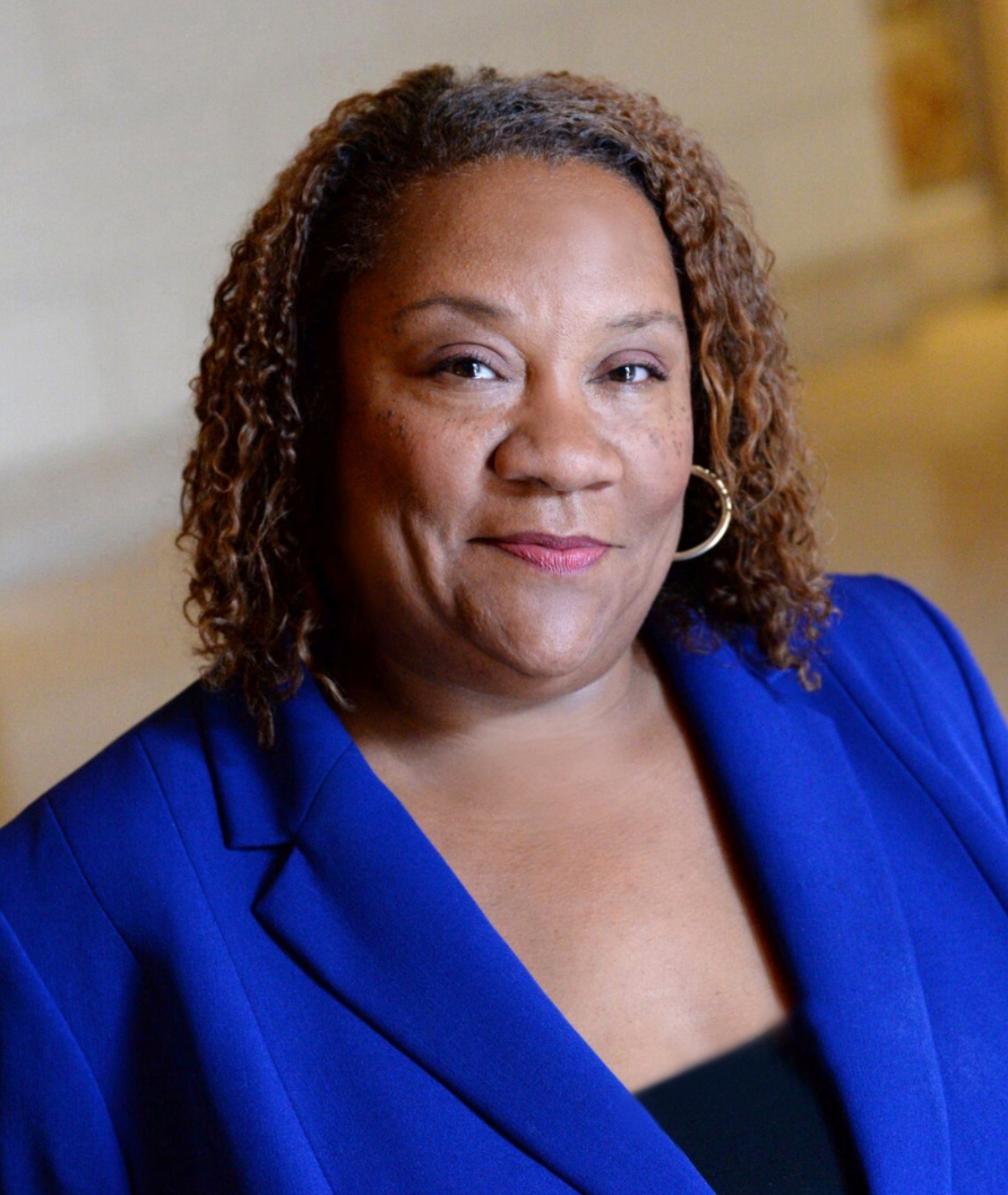 |
|
| Dana Canedy | |
Every year around this time I'm reminded of the line from Nora Ephron's film You've Got Mail, where the character played by Tom Hanks rhapsodizes about New York City in the autumn, typing to his online pen-pal how he imagines buying school supplies, and sending her "a bouquet of newly sharpened pencils." I always loved this image, not so much for the coziness of the fall setting (or nostalgia for a time in which e-mail was simply a part of our lives and not omnipresent!) but rather for its sense of possibility. Ephron captured the excitement of the future and new projects, and the satisfaction of sharing that enthusiasm with others.
One of the most satisfying points in the life of a book is, oddly enough, long before its publication. It's during the seasonal presentation of new titles, an opportunity for those closest to the manuscript to introduce their passion for writers and manuscripts, for editors to highlight exactly why a title is special, and for teams to envisage potential readers enjoying the finished books–even if that moment may not be for months or seasons to come. Like You've Got Mail's bouquet of pencils, a seasonal meeting becomes a collection of ideas and excitement just waiting to be put on paper, humming with the energy of something new.
Since the novels highlighted below—our version of a pencil bouquet—are each remarkable in their own way, we thought, who better to help introduce them than their editors? In Yonder by Jarabi Asim, a literary "quest-for-freedom novel" exploring love and resilience in the American South of 1852, Executive Editor Eamon Dolan found contemporary themes around race and language which Asim regularly explores in his nonfiction came to life on a fictional page. Carina Guiterman spent more than a year writing fan letters before Tara Isabella Burton's newest novel The World Cannot Give arrived in her inbox, and jumped on it immediately, noting, "only Tara could write a queer, feminist story about Christianity and religious zealotry!" Anna Pitoniak's Our American Friend, a Cold War-era spy thriller crossed with a fictional First Lady's biography, is another result of Guiterman's steady pursuit; having published together at a previous house, she was determined to bring Pitoniak's mastery of complex psychologies and ethical questions to Simon & Schuster. Marysue Rucci, now Publisher of Marysue Rucci Books, was also captivated by examining ethics in Jessamine Chan's debut, The School for Good Mothers, which follows the terrifying lengths a single mother must go to prove herself worthy of her daughter. "Chan mines the impossible standards to which mothers are held," writes Rucci, "and she explodes issues of class, race, power."
These novels all feature the very best fiction has to offer: complicated relationships exploring courage and love, questions of morality and motivations, new voices capturing marginalized experiences, and unforgettable characters who will break your heart as much as they fill you with hope. But right now, they also represent the start to a new season, the promise of next year and an invitation to join in a fresh pursuit.
I couldn't be more impressed with the lineup of novels Simon & Schuster will be publishing next Spring. I hope you'll read on to learn more about these authors and share in our excitement too.
Signed,
Dana Canedy
Senior Vice President and Publisher of the Simon & Schuster Imprint
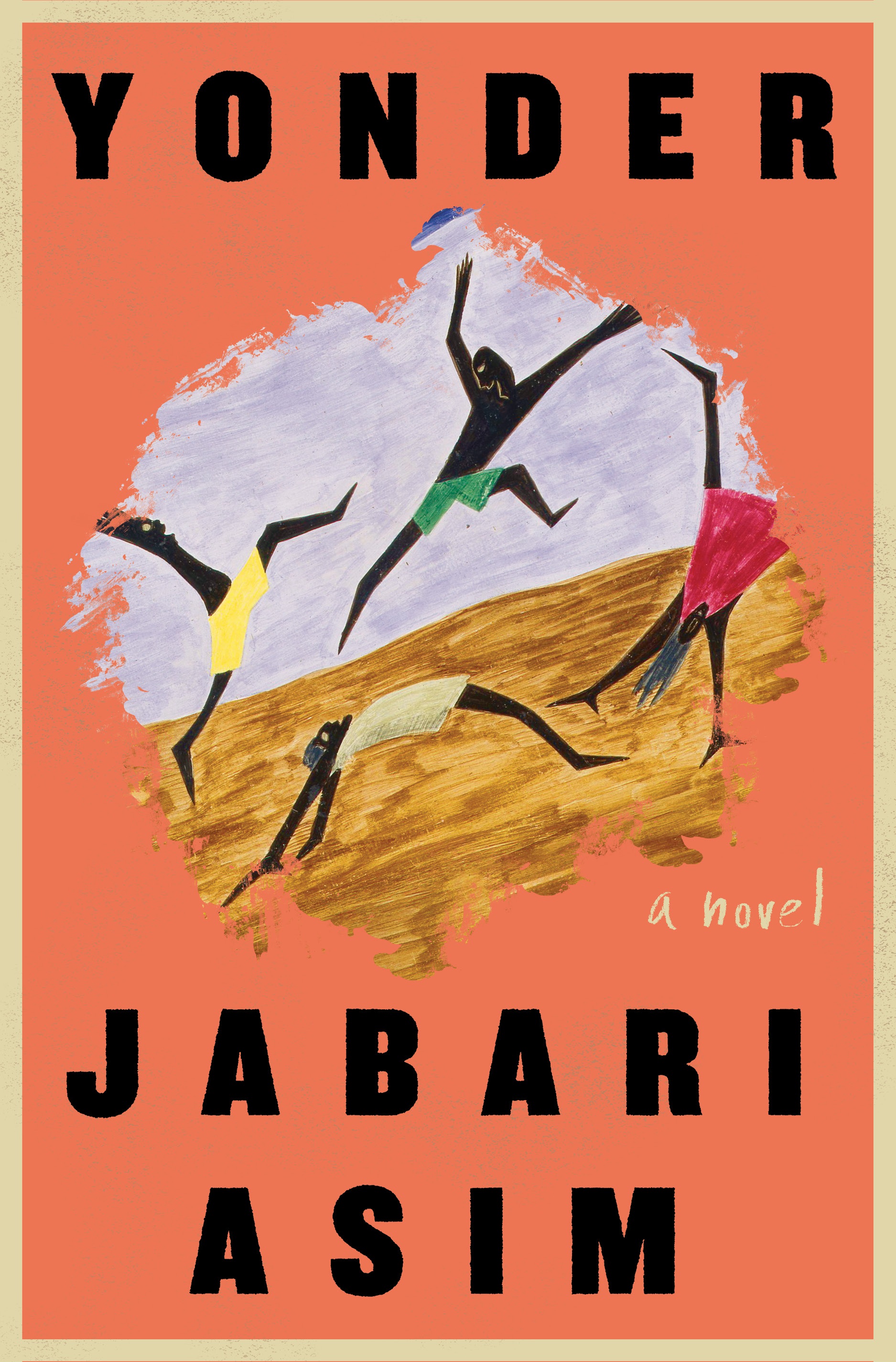 Yonder by Jabari Asim (January 11, 2022)
Yonder by Jabari Asim (January 11, 2022)
The Water Dancer meets The Prophets in this spare, gripping, and beautifully rendered novel exploring love and friendship among a group of enslaved Black strivers in the mid-19th century.
They call themselves the Stolen. Their owners call them captives. They are taught their captors' tongues and their beliefs but they have a language and rituals all their own.
In a world that would be allegorical if it weren't saturated in harsh truths, Cato and William meet at Placid Hall, a plantation in an unspecified part of the American South. Subject to the whims of their tyrannical and eccentric captor, Cannonball Greene, they never know what harm may befall them: inhumane physical toil in the plantation's quarry by day, a beating by night, or the sale of a loved one at any moment. It's that cruel practice—the wanton destruction of love, the belief that Black people aren't even capable of loving—that hurts the most.
It hurts the reserved and stubborn William, who finds himself falling for Margaret, a small but mighty woman with self-possession beyond her years. And it hurts Cato, whose first love, Iris, was sold off with no forewarning. He now finds solace in his hearty band of friends, including William, who is like a brother; Margaret; Little Zander; and Milton, a gifted artist. There is also Pandora, with thick braids and long limbs, whose beauty calls to him.
Their relationships begin to fray when a visiting minister with a mysterious past starts to fill their heads with ideas about independence. He tells them that with freedom comes the right to choose the small things—when to dine, when to begin and end work—as well as the big things, such as whom and how to love. Do they follow the preacher and pursue the unknown? Confined in a landscape marked by deceit and uncertainty, who can they trust?
In an elegant work of monumental imagination that will reorient how we think of the legacy of America's shameful past, Jabari Asim presents a beautiful, powerful, and elegiac novel that examines intimacy and longing in the quarters while asking a vital question: What would happen if an enslaved person risked everything for love?
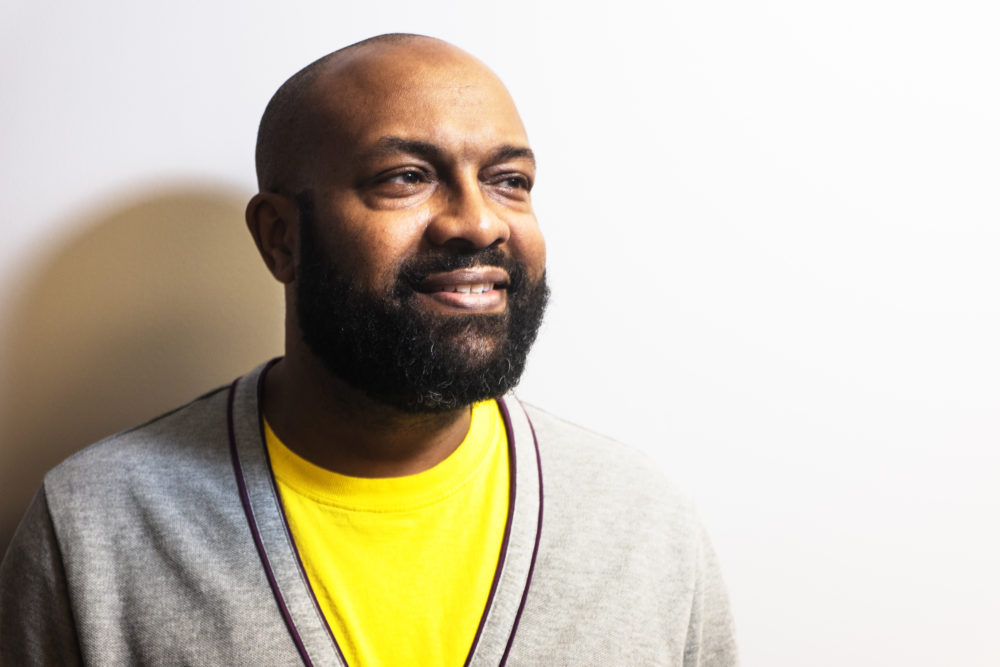 |
|
| Jabari Asim (photo: Shelf Reynolds II) | |
Jabari Asim is a writer and multidisciplinary artist. He directs the MFA program in creative writing at Emerson College, where he is also the Elma Lewis Distinguished Fellow in Social Justice. His nonfiction books include The N Word: Who Can Say It, Who Shouldn't, and Why; What Obama Means: For Our Culture, Our Politics, Our Future; Not Guilty: Twelve Black Men Speak Out on Law, Justice, and Life; and We Can't Breathe: On Black Lives, White Lies, and the Art of Survival. His books for children include Whose Toes Are Those? and Preaching to the Chickens: The Story of Young John Lewis. His works of fiction include A Taste of Honey, Only the Strong and his latest, Yonder, which will be published on January 11, 2022. He is joined by his editor, Eamon Dolan, in this conversation with Shelf Awareness.
Shelf Awareness: Did you have a character or question which inspired you to begin writing?
Jabari Asim: I had been reading about William "Billy" Lee, an enslaved man and able assistant to George Washington. William was "married" to a free Black woman named Margaret Thomas, but records indicate that Lee lived alone. William's story got me to thinking about what might happen if law and custom prevented two people who loved each other from being together.
SA: You've written fiction and nonfiction previously, as well as children's books. How does Yonder compare to your previous works?
JA: I like to think that my books are in conversation with each other. They tend to have themes and through-lines that reflect the power of story, the value of bringing hidden experiences to light, and finding joy in simple things. They have often begun in my imagination with a question along the lines of "what would happen if —?"
Eamon Dolan: The legendary Dawn Davis actually acquired this novel, but when she left, I quickly volunteered to work with Jabari. Years ago, I'd published The N Word, his brilliant book on language and race, and I was eager to benefit again from his wise mind and huge heart. Yonder is a thoroughly original and ultimately uplifting take on what has become a popular subgenre: the quest-for-freedom novel. If asked, I would shelve Yonder between The Underground Railroad by Colson Whitehead and The Water Dancer by Ta-Nahesi Coates.
 |
|
| Eamon Dolan | |
SA: Do you have a favorite line from the novel?
JA: The first in the book is the first line I jotted down: "All of us have two tongues." The "us" refers to the earliest generations of African-Americans. They had to forge a common tongue while shielding so many things from their captors. Early African-Americans were among the first code-switchers.
ED: Yonder is particularly contemporary in how it handles code-switching—the different ways some people must speak to each other and to outsiders in order to survive—and in how it shows some people's incredible capacity to retain the best human qualities when the world insists their lives don't matter. Jabari's favorite line is the first one in Yonder, mine is the last. Reading it made me feel a hope and joy that are thoroughly in keeping with the book and yet were an epiphany to me.
SA: Set in the American South of 1852, Yonder explores a time in which few people could pursue love and personal agency freely. Why was it important to explore these themes in your novel?
JA: I was thinking about contemporary observers who condemn our enslaved ancestors as inexcusably passive, despite abundant evidence to the contrary. I hope that the characters in Yonder who dare to challenge the limits imposed upon them will be seen as refuting those stereotypical notions. They demonstrate that thinking, acting, and loving were all forms of resistance, and often conducted covertly.
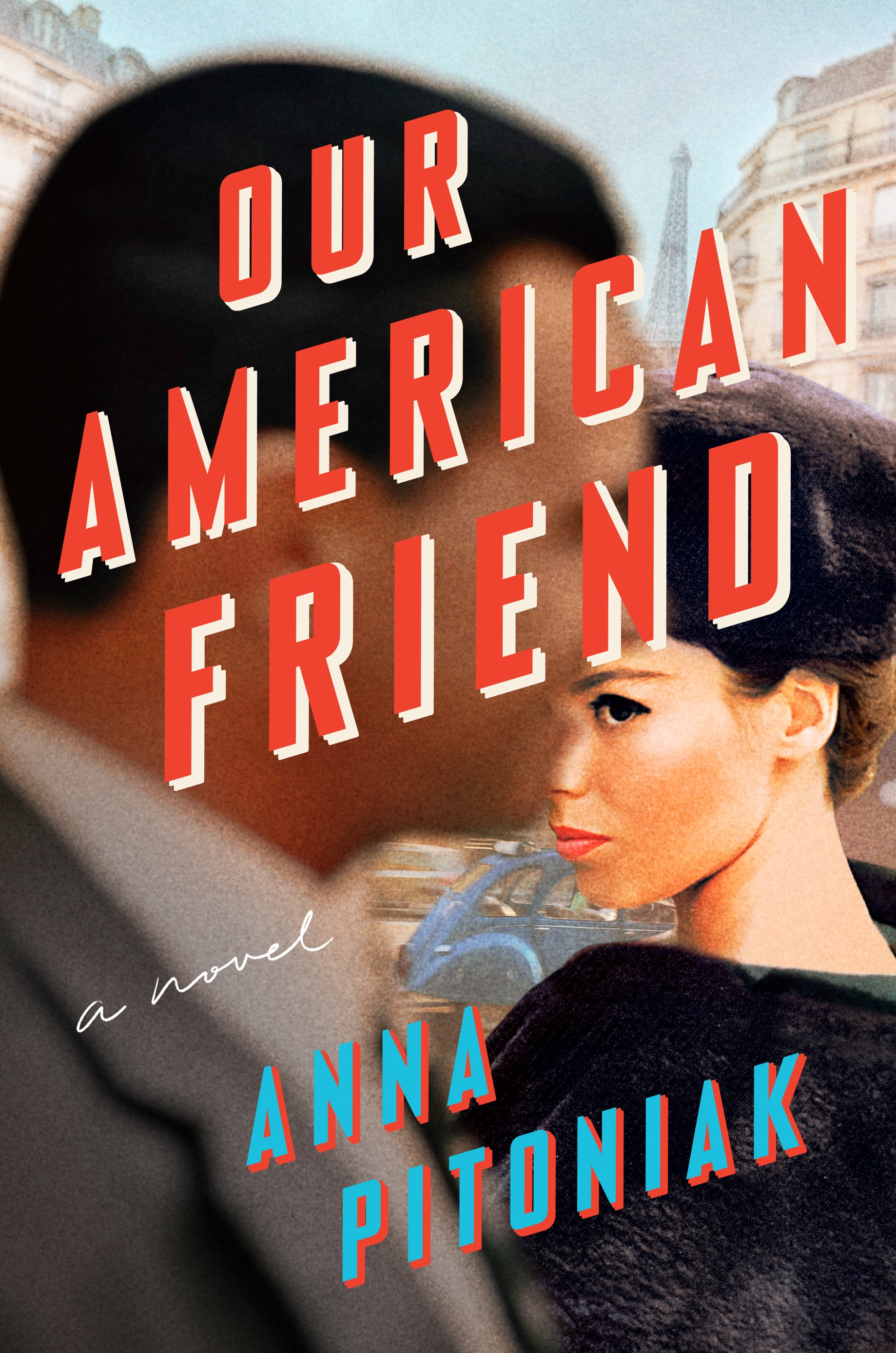 Our American Friend by Anna Pitoniak (February 15, 2022)
Our American Friend by Anna Pitoniak (February 15, 2022)
A mysterious first lady.
The intrepid journalist writing her biography.
And the secret that could destroy them both.
Tired of covering the grating dysfunction of Washington and the increasingly outrageous antics of President Henry Caine, White House correspondent Sofie Morse quits her job and plans to leave politics behind. But when she gets a call from the office of First Lady Lara Caine, asking Sofie to come in for a private meeting with Lara, her curiosity is piqued. Sofie, like the rest of the world, knows little about Lara—only that Lara was born in Soviet Russia, raised in Paris, and worked as a model before moving to America and marrying the notoriously brash future president.
When Lara asks Sofie to write her official biography, and to finally fill in the gaps of her history, Sofie's curiosity gets the better of her. She begins to spend more and more time in the White House, slowly developing a bond with Lara—and eventually a deep and surprising friendship with her.
Even more surprising to Sofie is the fact that Lara is entirely candid about her mysterious past. The First Lady doesn't hesitate to speak about her beloved father's work as an undercover KGB officer in Paris—and how he wasn't the only person in her family working undercover during the Cold War.
As Lara's story unfolds, Sofie can't help but wonder why Lara is rehashing such sensitive information. Why to her? And why now? Suddenly Sofie is in the middle of a game of cat and mouse that could have explosive ramifications.
For fans of The Secrets We Kept and American Wife, Our American Friend is a propulsive Cold War-era spy thriller crossed with a fictional biography of a First Lady. Spanning from the 1970s to the present day, traveling from Moscow and Paris to Washington and New York, Anna Pitoniak's novel is a gripping page-turner—and a devastating love story—about power and complicity and how sometimes, the fate of the world is in the hands of the people you'd never expect.
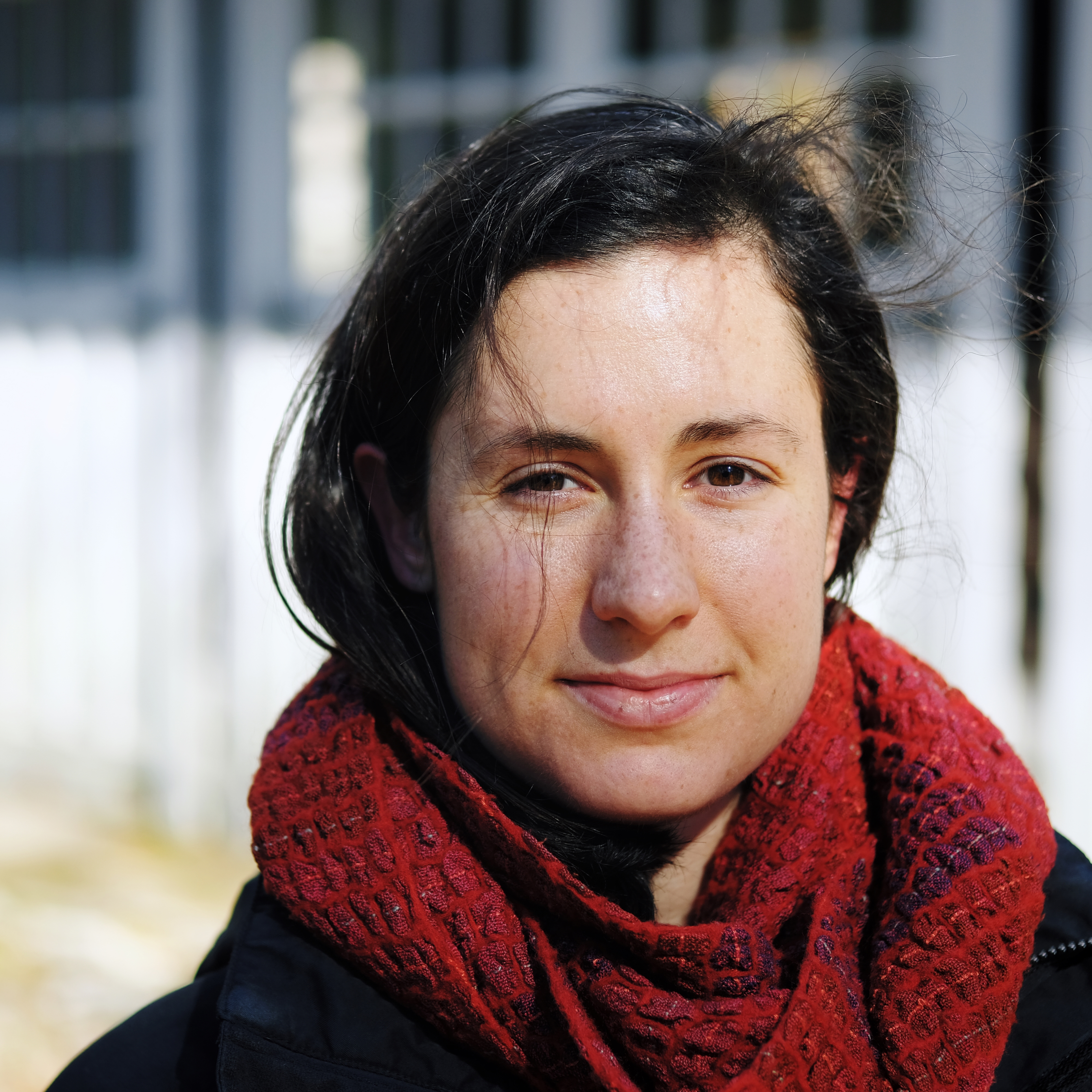 |
|
| Anna Pitoniak (photo: Andrew Bartholomew) | |
Anna Pitoniak is the author of Necessary People, The Futures and Our American Friend, which will be published on February 15, 2022. Before becoming a full-time author, she worked in book publishing, including as a senior editor at Random House. She is joined by her editor, Carina Guiterman, in conversation with Shelf Awareness.
Shelf Awareness: Tell us about the inspiration for Our American Friend, and how the novel came together.
Anna Pitoniak: The seed of this idea was first planted in the spring of 2016, when I read a profile of Melania Trump. And as the months and years went by, I kept thinking about this woman who grew up in a Communist country and eventually occupies the pinnacle of power in the ultimate capitalist society. I've always been interested in how women navigate the tension between personal ambition and wider loyalties. But, I knew that I didn't want to write about the real First Lady. I wanted to let my characters emerge from my imagination, and branch off in different directions.
Carina Guiterman: As with any job, there's a fair share of tedium (e-mails! Zoom meetings!) and disappointment (lost auctions! Bookscan numbers!) that come with being an editor. But then there are those exhilarating moments that more than make up for it, including the best feeling in the world as an editor: seeing an author you've worked with for years writing at the very top of her game. Our American Friend is very much Anna's best novel yet, and she turns the pressure way, way up. It's not an exaggeration to say that the decisions the two women at the heart of this novel make could change the global political order.
SA: Our American Friend incorporates contemporary relationships, historical settings, suspense, espionage—it's difficult to categorize into one genre! Tell us about how these elements came together in writing the novel.
AP: I knew that, in the world of Our American Friend, things weren't going to be quite as they appeared. Perhaps inevitably, this led me toward those spy-thriller elements. I've always loved espionage novels (John le Carre, Graham Greene, Alan Furst; the list goes on!). The notion of the world not quite being as it appears—that the world is shaped by this hidden machinery, by these figures in the shadows—I find it irresistible.
I knew, too, that the ghosts of the past were going to play a big role in shaping the drama of the present day. The past was just as important as the present, in my conception of this book, so the pacing and suspense of both sections had to go hand-in-hand. I knew that one wouldn't work without the other!
CG: I'm also excited to publish this book because we need more female-centered spy thrillers! And this isn't just a feminist spy novel; it's a wonderful story of deep and unexpected friendship, a transporting work of historical fiction, and it's an epic love story to boot. It's genre defying in a similar manner as The Secrets We Kept by Lara Prescott, American Wife by Curtis Sittenfeld, and The Alice Network by Kate Quinn.
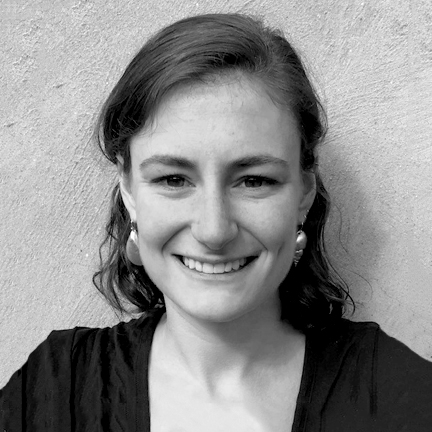 |
|
| Carina Guiterman | |
SA: Do you have a favorite line from the novel?
AP: I like when Sofie muses about our relationship to history: "Some moments in history arrive quietly. In graduate school, we talked about the hidden turning points, which are only revealed with plenty of retrospect. Who could imagine the ripple effects of these contingencies—the heir born with hemophilia; the Austrian boy rejected from art school; the invisible mutation of a spike protein structure? But other moments in history arrive like a screaming meteorite. You can't help but know that you're living through something."
CG: That's the line I picked out, too! While Our American Friend is clearly a work of fiction, I hope readers come away from it with a deeper understanding of the fact that while we often think of history as being shaped by the big things—wars and governments and global pandemics—the course of history has just as much been forged by smaller, more unseen forces—sometimes even just a single person, a single interaction, a single personal decision, can change history. I hope that Our American Friend helps readers see their world anew and cause them to question what forces, both big and small, seen and unseen, have shaped that world.
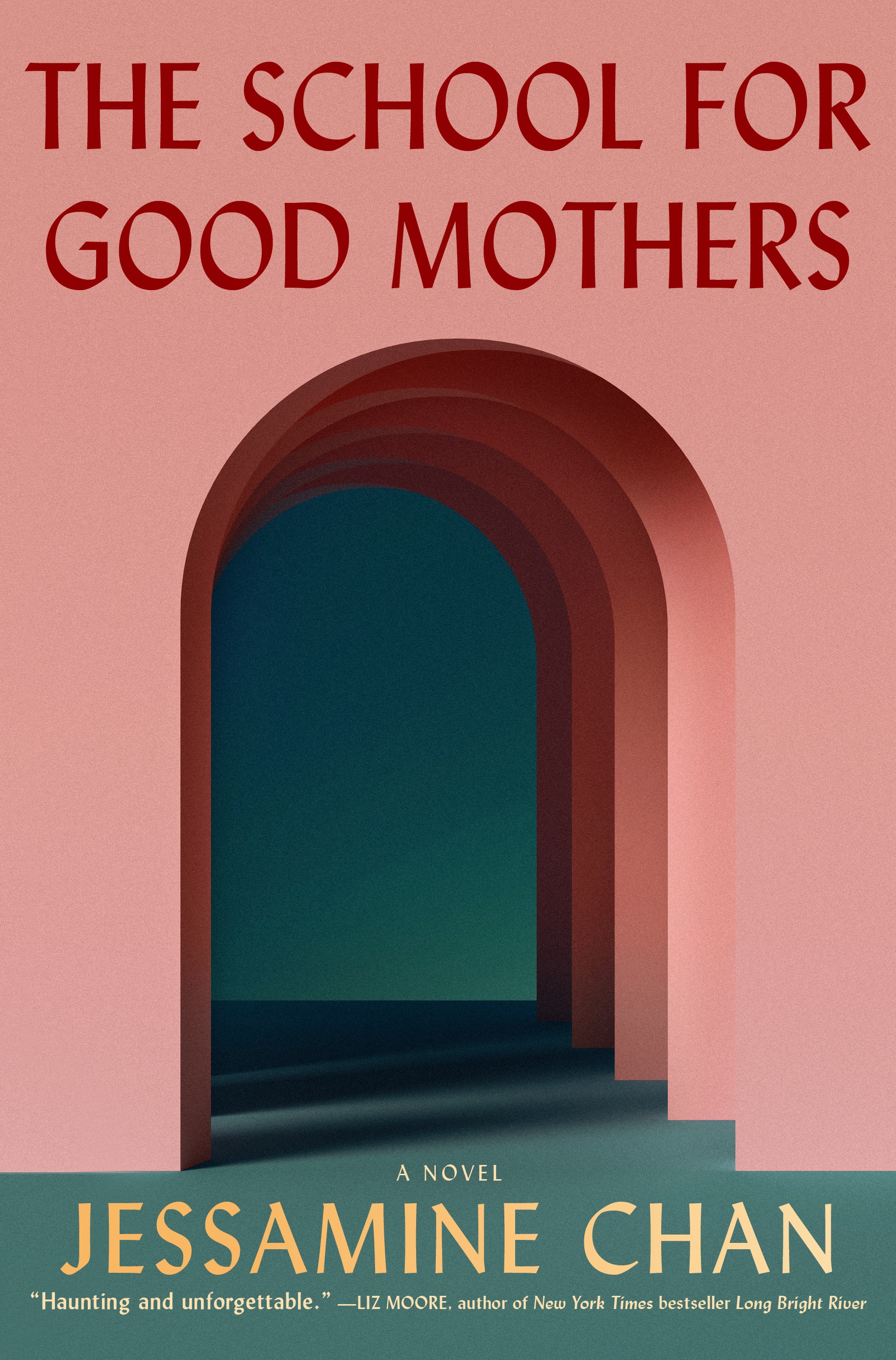 The School for Good Mothers by Jessamine Chan (January 4, 2022)
The School for Good Mothers by Jessamine Chan (January 4, 2022)
In this taut and explosive debut novel, one lapse in judgment lands a young mother in a government reform program where custody of her child hangs in the balance.
Frida Liu is struggling. She doesn't have a career worthy of her Chinese immigrant parents' sacrifices. She can't persuade her husband, Gust, to give up his wellness-obsessed younger mistress. Only with Harriet, their cherubic daughter, does Frida finally attain the perfection expected of her. Harriet may be all she has, but she is just enough.
Until Frida has a very bad day.
The state has its eyes on mothers like Frida. The ones who check their phones, letting their children get injured on the playground; who let their children walk home alone. Because of one moment of poor judgment, a host of government officials will now determine if Frida is a candidate for a Big Brother-like institution that measures the success or failure of a mother's devotion.
Faced with the possibility of losing Harriet, Frida must prove that a bad mother can be redeemed. That she can learn to be good.
A searing page-turner that is also a transgressive novel of ideas about the perils of "perfect" upper-middle class parenting; the violence enacted upon women by both the state and, at times, one another; the systems that separate families; and the boundlessness of love, The School for Good Mothers introduces, in Frida, an everywoman for the ages. Using dark wit to explore the pains and joys of the deepest ties that bind us, Chan has written a modern literary classic.
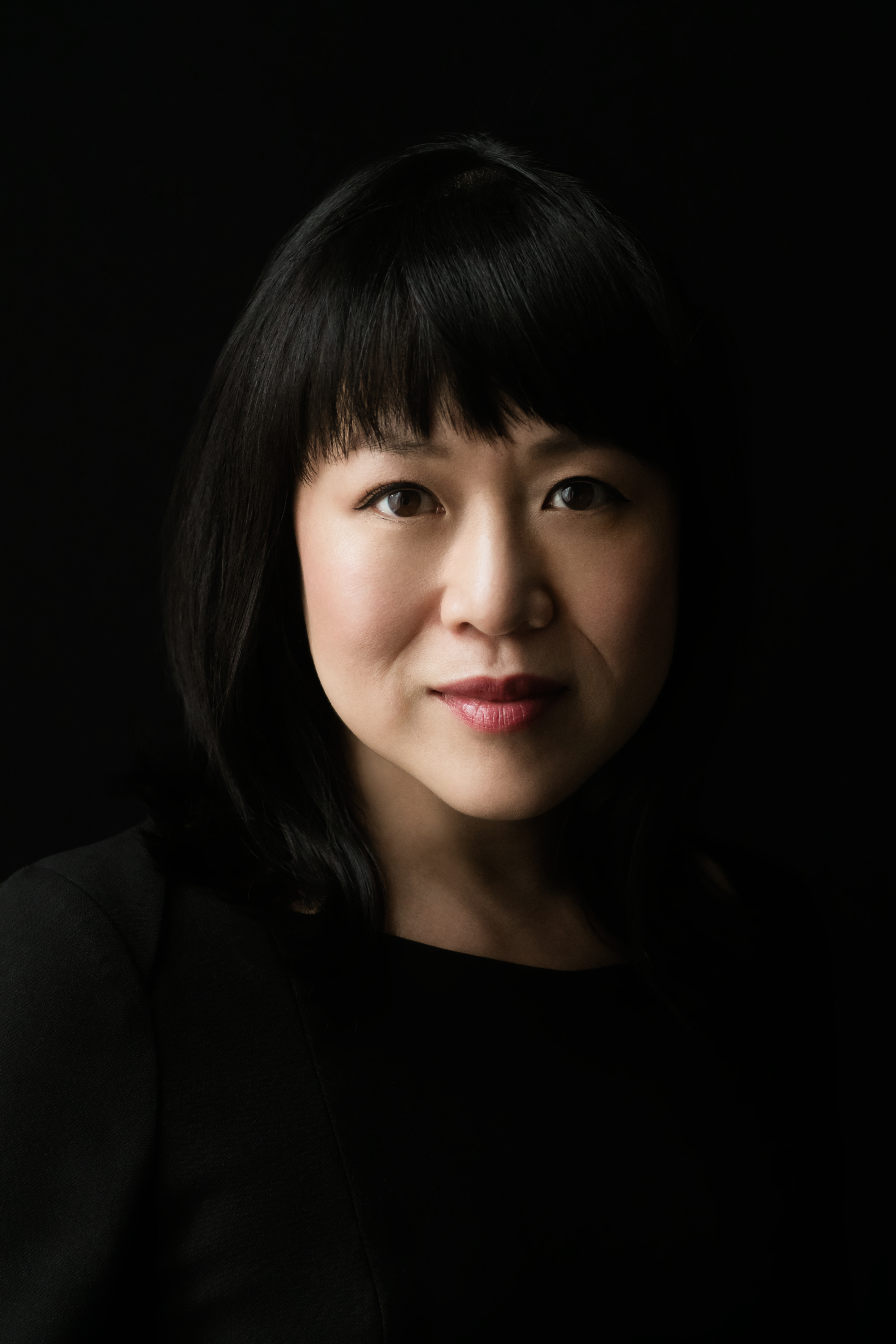 |
|
| Jessamine Chan (© Beowulf Sheehan) | |
Jessamine Chan's short stories have appeared in Tin House and Epoch. A former reviews editor at Publishers Weekly, she holds an MFA from Columbia University and a BA from Brown University. Her work has received support from the Elizabeth George Foundation, the Bread Loaf Writers' Conference, the Wurlitzer Foundation, the Jentel Foundation, the Kimmel Harding Nelson Center, the Anderson Center, the Virginia Center for the Creative Arts, and the Ragdale Foundation. Her debut novel, The School for Good Mothers, will be published January 4, 2022. She's joined by Marysue Rucci in conversation with Shelf Awareness.
Shelf Awareness: Tell us about the inspiration for The School for Good Mothers and how the novel came together.
Jessamine Chan: In 2014, in the midst of wrestling with my ambivalence about whether or not to have a baby, I read an article about a mother fighting to regain custody of her son after leaving him home alone. The clinical language used by Child Protective Services, and the keen sense of injustice I felt on that mother's behalf, lodged in my memory. So much about parenting, and especially motherhood, in America is heavy on rules. The societal pressure to make the right choices for your child and the feeling of being watched (and perhaps judged) by other parents is part of daily life.
Marysue Rucci: I loved The School for Good Mothers immediately for its premise, its originality, its chilling supposition that still feels so terrifyingly possible. Chan mines the impossible standards to which mothers are held, the inequity of demands on mothers versus fathers; and she explodes issues of class, race, power. In that sense, I think Jessamine's novel will resonate with readers of Red Clocks and The Handmaid's Tale. The best fiction opens our minds to the experiences of others, and The School for Good Mothers does that in spades.
 |
|
| Marysue Rucci | |
SA: You explore many facets of identity through your main character, Frida, as a mother and daughter of Chinese immigrants. Was it important for you to have a Chinese-American perspective as the main character?
JC: Yes, representation is important. Frida is in many ways the thorny, complicated Chinese-American heroine I've always wanted to read. She's vulnerable and flawed. She's messy. It means so much that the book's jacket copy describes Frida as an "everywoman." I think Frida's heart is in the right place, even if she doesn't always make the right decisions. Part of what I hope the book calls into question is whether any mother can be judged as "bad" or "good," since such judgments are influenced by race, class, and culture.
SA: Which indie bookstore were you/are you excited to visit once Covid restrictions allow?
JC: I just moved back to my hometown, so I've popped into The Book Table in Oak Park, Illinois. Right before leaving Philadelphia, I discovered Joseph Fox Bookshop. In Philly, I've also heard great things about Harriett's Bookshop and Uncle Bobbie's.
SA: Do you have a favorite line from the novel?
JC: "I am a bad mother, but I am learning to be good."
MSR: Has to be the final two sentences—but no spoilers!
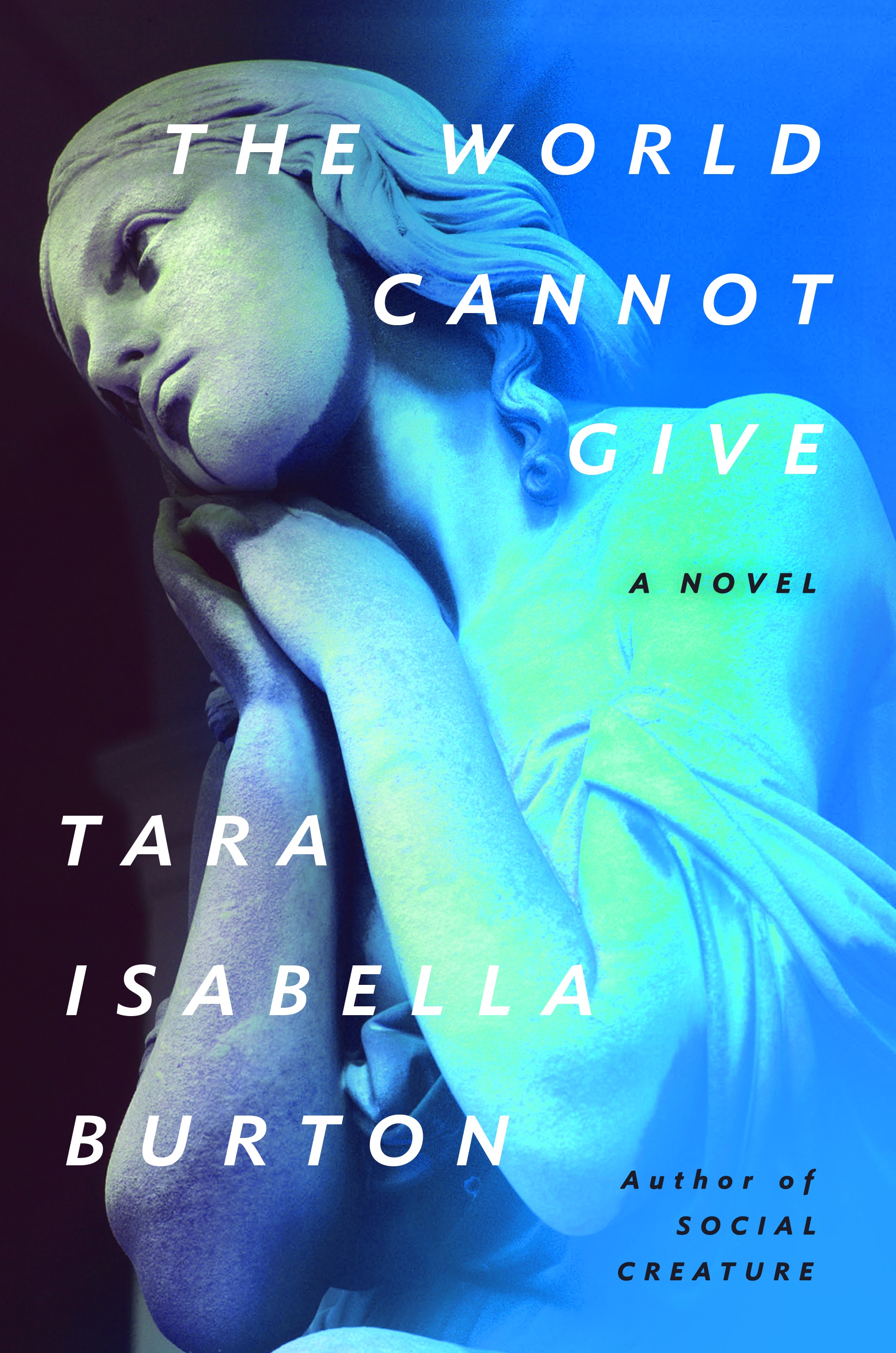 The World Cannot Give by Tara Isabella Burton (March 8, 2022)
The World Cannot Give by Tara Isabella Burton (March 8, 2022)
The Girls meets Fight Club in this coming-of-age novel about queer desire, religious zealotry, and the hunger for transcendence among the devoted members of a cultic chapel choir in a prestigious Maine boarding school—and the obsessively ambitious, terrifyingly charismatic girl that rules over them.
When shy, sensitive Laura Stearns arrives at St. Dunstan's Academy in Maine, she dreams that life there will echo her favorite novel, All Before Them, the sole surviving piece of writing by Byronic "prep school prophet" (and St. Dunstan's alum) Sebastian Webster, who died at nineteen, fighting in the Spanish Civil War. She soon finds the intensity she is looking for among the insular, Webster-worshipping members of the school's chapel choir, which is presided over by the charismatic, neurotic, overachiever Virginia Strauss. Virginia is as fanatical about her newfound Christian faith as she is about the miles she runs every morning before dawn. She expects nothing short of perfection from herself—and from the members of the choir.
Virginia inducts the besotted Laura into a world of transcendent music and arcane ritual, illicit cliff-diving and midnight crypt visits: a world that, like Webster's novels, finally seems to Laura to be full of meaning. But when a new school chaplain challenges Virginia's hold on the "family" she has created, and Virginia's efforts to wield her power become increasingly dangerous, Laura must decide how far she will let her devotion to Virginia go.
The World Cannot Give is a shocking meditation on the power, and danger, of wanting more from the world.
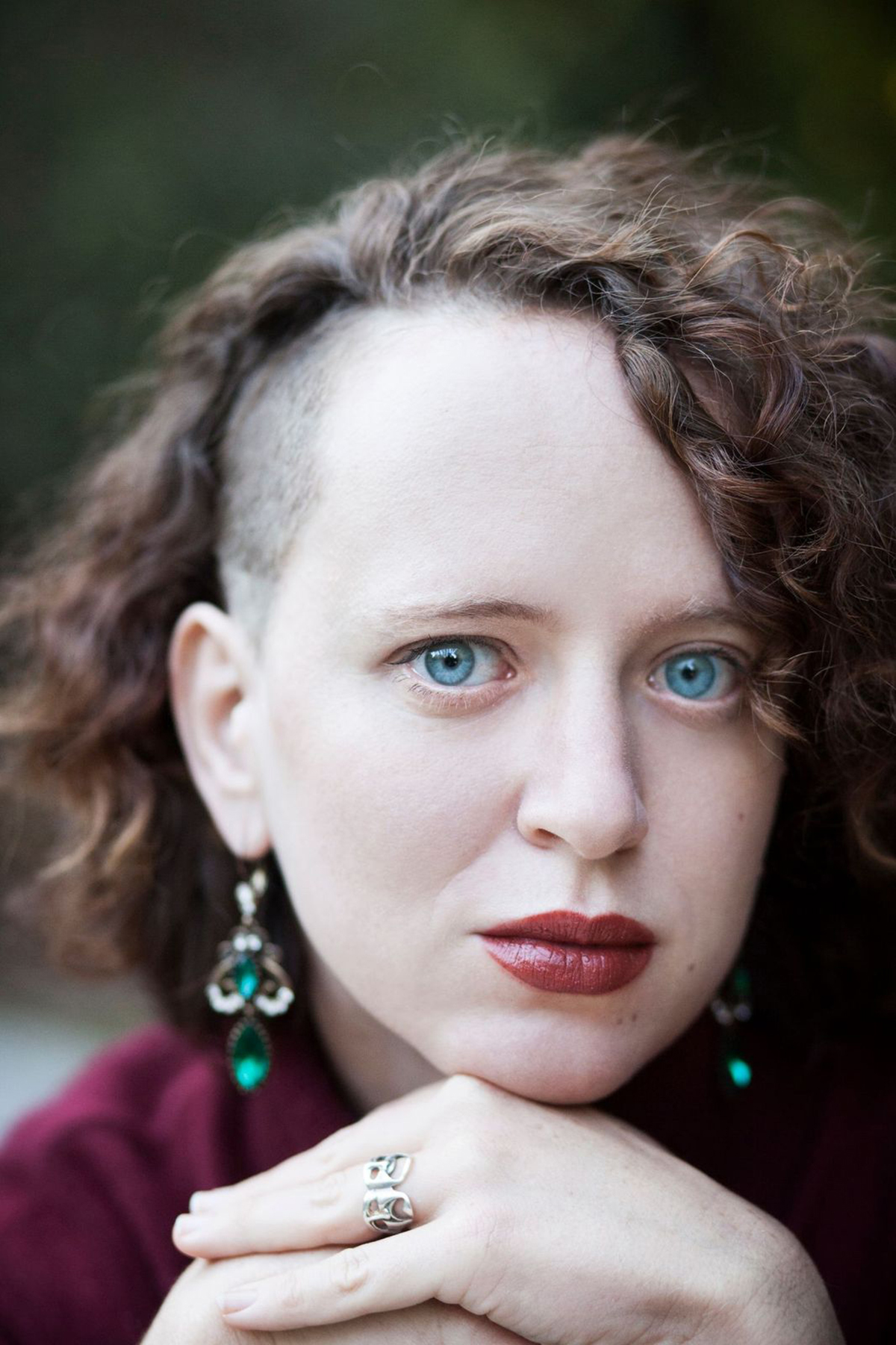 |
|
| Tara Isabella Burton (photo: Rose Callahan) | |
Tara Isabella Burton's debut novel, Social Creature, was named a "best book of the year" by The New York Times, Vulture, and The Guardian. She has written on religion, culture, and place for The New York Times, National Geographic, The Washington Post, The Wall Street Journal, City Journal, The Economist's 1843, Aeon, The BBC, The Atlantic, Salon, The New Statesman, and The Telegraph. She is a columnist at Religion News Service, a contributing editor at American Purpose, and the former staff religion writer at Vox. Her fiction has appeared in Granta, Volume 1 Brooklyn, The New Yorker's Daily Shouts, Tor, PANK, and more. She received a doctorate in theology from Trinity College, Oxford, where she was a Clarendon Scholar, in 2017. Her latest novel, The World Cannot Give, will be published March 8, 2022. She is joined by her editor, Carina Guiterman, in conversation with Shelf Awareness.
Shelf Awareness: Tell us about the inspiration for The World Cannot Give, and how the novel came together.
Tara Isabella Burton: I knew I wanted to write a boarding-school Bonnie & Clyde, a story about an intimate friendship made all the more intense by a shared sense of moral hunger: a story about teenagers who craved a meaningful life so badly that they were willing to die—and maybe even kill—for it.
Carina Guiterman: I love books about dangerous obsession—obsession with a person, with a goal, you name it—and I can think of few novelists who write about this sort of dangerous, all-consuming passion in the way that Tara does. Tara's debut consumed me while reading on vacation, and I started writing her agent fan letters as soon as I got home. Like Social Creature, this is a novel about obsession—but in this case, religious obsession, and the obsession with being Good with a capital G.
SA: The characters in The World Cannot Give all seem to be hungry for something: social power, transcendence, sex, loyalty, acceptance—both of oneself and from others. How did the boarding school setting play into capturing those motivations?
TB: I wanted to write a book where what the outsider-protagonist wanted was something real, something vital, even as the exclusive, insular group in which they found it was totally compromised. I also wanted to write a novel of ideas that would play out among people young enough, and perhaps unworldly enough, for those ideas to not be compromised by the "real world." A kind of Lord of the Flies. A boarding school seemed the perfect way to create a character-driven story, where our characters' conflicting desires, and their inchoate ideas, could bang up against each other to create dramatic chaos.
 |
|
| Carina Guiterman | |
SA: Do you have a favorite line from the novel?
TB: The opening line—"Laura cries easily"—precisely because I wasn't expecting it to be the opening line. Well into the editing process, the opening was different, focusing on Sebastian Webster. Then, my amazing editor suggested switching two sections. A line that had previously been almost a throwaway suddenly became the heart of the book: a book about what it means to be the kind of person who feels too deeply, wants too much, cries too easily.
CG: One of my favorite lines also comes from the beginning of the book, when Laura is first arriving at school: "She has been homesick, all her life, for here." This line says so much about Laura, about how she's spent her whole childhood longing for a different world, the world of old books and arcane traditions and serious scholarship. Many of the characters in The World Cannot Give feel—often to their detriment—that real life doesn't happen in the quotidian and the day-to-day, but rather in the realm of the extraordinary—if only they can get there.
SA: What do you hope readers will take away from The World Cannot Give?
CG: Tara writes beautifully about the power of having faith in something greater than ourselves, while at the same time delving into the dangers of all-consuming faith, and what happens when we put our faith into the wrong people. In this way, I'd shelve this novel between The Girls by Emma Cline—I love the way Tara gets into the inner workings of religious fervor and groupthink here in the way Cline explored cult mentality in her novel—and The Secret History by Donna Tartt.